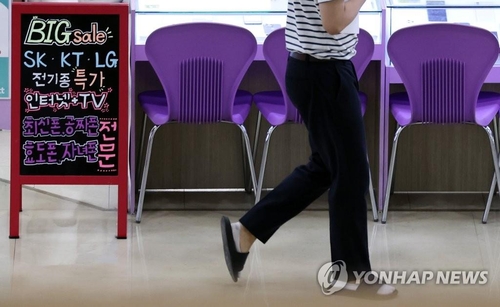- California Assembly OKs highest minimum wage in nation
- S. Korea unveils first graphic cigarette warnings
- US joins with South Korea, Japan in bid to deter North Korea
- LPGA golfer Chun In-gee finally back in action
- S. Korea won’t be top seed in final World Cup qualification round
- US men’s soccer misses 2nd straight Olympics
- US back on track in qualifying with 4-0 win over Guatemala
- High-intensity workout injuries spawn cottage industry
- CDC expands range of Zika mosquitoes into parts of Northeast
- Who knew? ‘The Walking Dead’ is helping families connect
Gov’t to scrap controversial handset subsidy ban to lower burden
The South Korean government on Monday announced its plans to scrap the decadelong controversial ban on handset subsidies as part of efforts to lower the financial burden on consumers for communications service.
According to the Office for Government Policy Coordination, the government will abolish the Mobile Device Distribution Improvement Act, which currently prohibits mobile carriers from providing excessive discounts or illegal subsidies to customers.
“We believe it is time to alleviate the cost burden of purchasing mobile devices with the recent increase in smartphone prices,” a government official said.
The move to abolish the ban was unveiled at a government-public debate, the fifth of its kind, that was originally scheduled to be attended by President Yoon Suk Yeol.
Yoon had attended all four previous sessions but skipped Monday’s meeting due to what his office called “health issues.”
Still, he has instructed the government to come up with ways to lower the price of cellular phones as soon as possible, according to presidential officials.
The government should “look for ways to practically lower mobile device prices even before the abolition of the mobile device act by promoting competition between service providers,” the president was quoted as saying while meeting with his top aides at his Yongsan office.
The ban, implemented in 2014, was designed to bring transparency to the market by curbing subsidies that exceeded legal limits and fostering competition among mobile carriers.
But the policy has been criticized for restricting healthy competition by preventing mobile carriers from offering legal subsidies, consequently limiting opportunities for customers to buy cell phones at lower prices.












